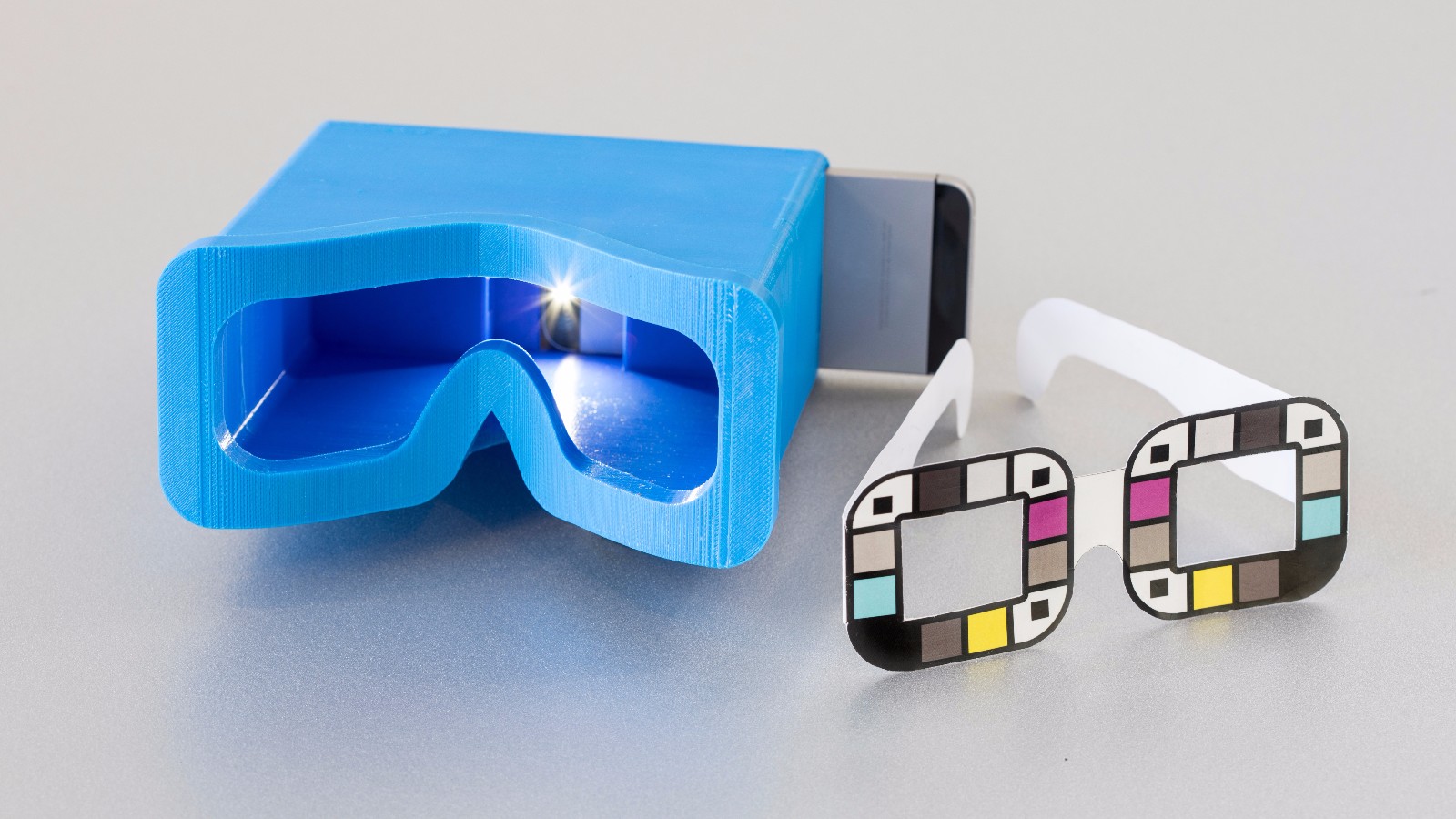Smartphone selfie app can diagnose pancreatic cancer

A new smartphone camera app could help diagnose pancreatic cancer just by taking a picture of a person's eyes.
Dubbed 'BiliScreen', the app, developed by researchers at the University of Washington, combines with a 3D printed visor that can screen for early signs of the disease.
Users wear a special set of glasses before taking a selfie using the BiliScreen app to calibrate the tool. Users then take another photo of their eyes using the 3D-printed visor, which is designed to control light levels.
The apps built-in machine learning algorithms examine the whiteness of the sclera, the white part of the eye, looking for an excessive build up of bilirubin.
Excessive bilirubin causes the sclera to yellow and can indicate jaundice - one of the earliest symptoms of several conditions including hepatitis and pancreatic cancer. But, once noticeable to the naked eye, jaundice can indicate the problem has already progressed to a level of concern.
The idea behind the app is to be able to detect levels of jaundice before they are visible to the naked eye. Its ease-of-use also means people can screen themselves whilst at home or even monitor levels of jaundice without having to visit their doctor.
In an initial study involving 70 people, the app correctly identified cases of concern almost 90% of the time compared to the current standard blood test.
“The problem with pancreatic cancer is that by the time you’re symptomatic, it’s frequently too late,” said Alex Mariakakis, a doctoral student at the Paul G. Allen School of Computer Science & Engineering. “The hope is that if people can do this simple test once a month — in the privacy of their own homes — some might catch the disease early enough to undergo treatment that could save their lives.”
The study built on earlier work from the University of Washington's Ubiquitous Computing Lab whose BiliCam app screens for jaundice in newborns with just a photo of a baby's skin. In a recent study, BiliCam was found to accurately provide bilirubin estimates in 530 infants.
Researchers are now looking to develop BiliScreen ever further, testing it on a wider range of people at risk of jaundice as well as removing the need for the calibration glasses and 3D-printed box.










